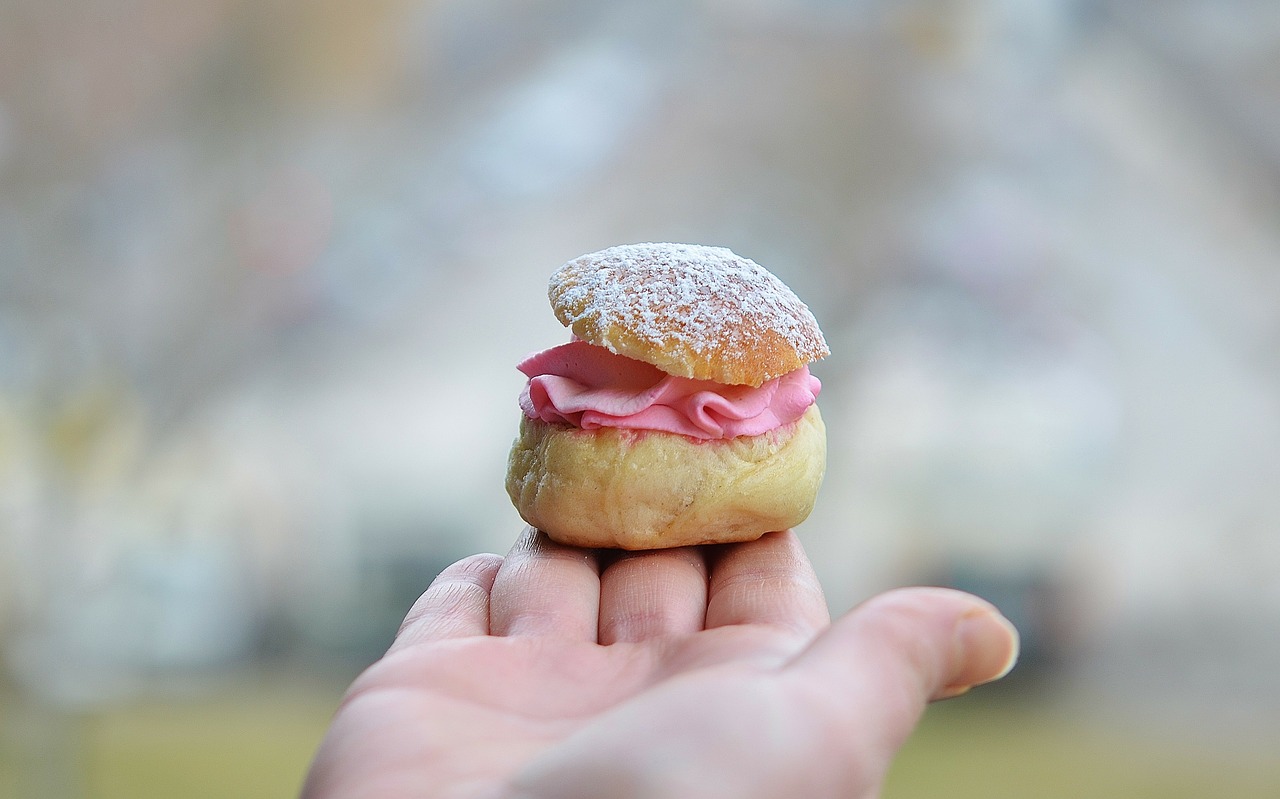Read the blog
Mindful Eating in Stressful Times

Take some time to savor something good.
Have you been stressed out lately? With a tumultuous U.S. election just behind us, and the holiday season now bearing down on us, you might find yourself a little…frazzled. How then, exactly, are we supposed to keep our cool around food in stressful times?
My colleague Nicole Christina, LCSW is here to tell you how in this, my first guest post!
You may be saying to yourself “Please don’t speak to me about another self-improvement project and don’t tell me to do it in “three easy steps!”” Women are so busy trying to work, grocery shop, make meals, transport kids to activities, and run the household, that there’s nothing simple or easy about living in today’s time starved world. The thought of trying one more method of improving one’s life may feel impossible. As women, we’ve never had as many choices, but as a society we haven’t figured out how to have a career and a sane home life. And for those of us high achievers striving to do it all well, burnout is always lurking just behind the corner. Being burned out doesn’t lend itself to practicing a new skill. Burnout lends itself to eating stale cookies in the pantry when nobody’s looking. But allow me to state a case for trying a practice that pays high dividends, is free, and is profoundly satisfying. Some of my clients have even called it life changing.
Mindful eating is a practice that is simple, but not easy. The goal is to get us off of autopilot, and help us stay in the present as we eat. Because we eat multiple times a day, we get many opportunities to practice slowing down and savoring our food, as well as the present moment. We do this slowly, imperfectly, and playfully. Instead of another task, mealtimes become a way to bracket our hectic lives with a few moments of precious stillness. It’s a sweet pause that is proven to do wonders for our mental state, as well as our physiology.
Here are some of the reasons that I recommend Mindful Eating to my clients who have conflicted relationships with food (and show me a woman who doesn’t!):
- Mindful eating actually helps us digest better. Our bodies do not assimilate nutrients when we are eating in stress mode, and that includes checking our Facebook feed.
- Mindful eating brings a calmness that can work its magic into other parts of our lives–it feels so good, and so different from the norm that often people want to try mindfulness in other aspects of their lives.
- Eating becomes more enjoyable so it’s possible you may be satisfied with less. We taste more, savor more, and appreciate more. Appreciation and gratitude are closely linked with happiness.
- Our bodies have some regular time to power down throughout the day. Evidence suggests that mindfulness reduces inflammation and decreases pain.
- We learn how to manage the stress in our lives, which helps us develop a sense of mastery and competence.
- With practice, mindful eating helps us build a relationship with one’s self. We are the experts on our own bodies, and that realization feels powerful.
Here’s a promise. Try the following exercise, and tell me if you don’t feel more calm. The next bite of food, or sip of beverage, take some deep breaths. Notice the textures, the flavors, even the temperature. Put away the screens. Allow your body and brain to rest and be still. Bring your whole attention to what you are eating or drinking. When you become distracted, simply bring your attention back to your eating again. The is a practice that is imperfect, fluid, and will get easier with time. It’s one thing to read about, it’s quite another to experience.
In this demanding, overstimulating world, mindful eating allows us to restore ourselves, and respect our need to run on human time, rather than electronic time. It’s a practice that runs counter to the multi-tasking, fast food, grab-a-protein bar lifestyle. It’s radical in that it resists the impulse to try to go faster and be more efficient. It reminds us that we are human, and eating is supposed to be satisfying and pleasurable. That’s why we have taste buds.
Nicole Christina is a psychotherapist specializing in food and eating issues. She recently launched a new webcourse: Diets Don’t Work! But Mindful Eating Does. You can find her on NicoleChristina.com.
Dietitians Unplugged Podcast – BEDA conference live!
Aaron and I did a “live” update from the Binge Eating Disorder Association (BEDA) Conference in San Francisco last month. We had so much fun there, we wanted to share a little bit of it with you.
Listen on Libsyn, iTunes, or Stitcher.
Follow us on Facebook
Subscribe and get my free guide:
Why you overeat …and what to do about it
Click here if you just want my newsletter!
A lot has to do with energy and the energy we create during the eating process. I find that rushed, nervous eating contributes to a nervous stomach. Continuation of that habit can lead to many digestive ailments.